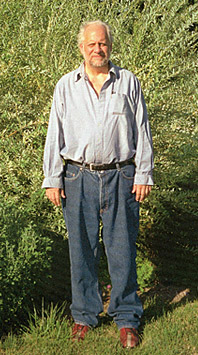The Garden at the End of the Tunnel
Home gardening occupies a serene corner of the clamorous, go-go American business landscape. You’re unlikely to find the gardening sector grabbing headlines and leading off news broadcasts. Usually, the loudest buzz in gardening comes from bees gathering pollen.
2020 is a whole other story. Within six months, the home garden industry saw a quantum leap in sales and new customers, with revenues magically levitating 60%, a seismic event in a tranquil nonindustrial industry.
Magic has been in short supply this year. For nine months, the COVID-19 virus has upturned our lives. Our viral foe—invisible, intangible, indifferent—has caused dire levels of illness and lives disrupted and lost. Looming winter lockdowns darken our world. It’s all bad.
Is there light at the end of the tunnel? Gaze meditatively and you will soon see a kaleidoscope of vivid colors, natural beauty and ripe produce. Freshly perfumed air wafts through the cold. How can you bring this dreamscape to life? Ask one of our country’s 50 million devoted and dedicated gardeners—who will lead you to the Beulah Land in your own backyard.
Indeed, just when everything seems to be contracting, the garden is expanding. The 2020 gardening boom will reshape not just the horticulture crowd but American society at large—a natural counterforce to the light speed technological web that ensnares us, as we surrender two-thirds of our time to staring at glowing screens where nothing grows.
In contrast, towns, civic life, technology, and culture—all the features of our lives we hold dear—arose from the cultivation of plants. The way we garden today is scarcely different from how the first gardeners went about their work about 12,000 years ago. Nothing is new under the sun.
Consider the so-called “Coming Singularity”. Technocrats envision a near-future in which human brains, merging with cybertechnology, develop “superintelligences”. Machines, however, will concurrently possess super-super intelligences that will get more super by the second.
Some believe this mega paradigm shift will result in the extinction of humanity. I see it as a rebirth, a renaissance when we obsolete homo sapiens will have new free time and space to super-evolve our creative aptitudes and capacities for a Second Enlightenment. Gardens will flourish and nourish lives. Home at last.
Moreover, living in a deep green world brought us here. We coevolved with the garden, and the garden with us—a singular super-hybrid. Plants are the essence of life on earth: the prime resource for animal life, food, shelter and clothing—and the key to survival for all eight billion of us. For all our cybernetic and digital intelligence, the coming Singularity has been here a long time. How so?
This proto-Singularity is powered by the super-genius of plants. Scientists in various disciplines are continually studying plants’ myriad technologies to understand their intricate genes, self-propagation and uncanny communications.
Using only air, sunlight, water, and soil, plants have been relentlessly creating, recreating and varying themselves ad infinitum. Unlike even the most powerful cyborg army, cultivated plants and gardens are altogether both simple and complex, as well as ancient and modern. Happily, you can’t turn them off.
Thus, 2020’s expansion of new gardeners—20 million strong—will fundamentally transform America’s landscape and society. This grassroots movement will be a harmonious and relaxed affair, with participants of every race, ethnicity, income, age, gender, and political slant. Call it the “Plural Singularity”.
As we wrap up this hapless past year, our gardens are a beacon of new hope. No other place is so many places. Even the simplest garden plot extends home and family life. A garden is a refuge, an outdoor schoolroom, a Shangri-La of bliss, joy and revelation. It’s all good.
In your garden, you partner with plants to create a private Eden of color, flavor, scent, nutrition, ineffable beauty, and deep satisfaction. True magic is available at any time, right at home—and you are the magician.
A version of this article appeared in The Allentown Morning Call, The Fayetteville Observer, and the Lubbock Avalanche-Journal.
